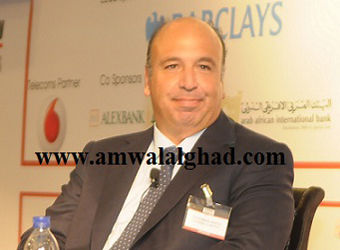Governments and corporations alike must step-up investments in education and corporate governance to sustain an African growth story based on the twin forces of demographics and the addition of value to natural resource wealth, Citadel Capital Chairman and Founder Ahmed Heikal told a high-level summit on Tuesday.
“For African corporations and multinationals alike, Africa is the last great frontier. Our continent’s economies are in the earliest years of what we believe will be a century-long growth phase driven by demographic change and the harnessing of natural resource wealth,” noted Heikal. “Ensuring this growth is sustainable demands that we bridge pervasive knowledge gaps; that corporations be accountable actors for positive change; and that commitments be honored over the long term.”
Development finance institutions will continue to be catalysts of that sustainable development, Heikal added.
Noting that Africa is “already home to a billion consumers,” Heikal said that by 2040, “our continent will be home to the world’s largest working-age population. A decade later, we will be 20% larger in population than India (where the population will be stable), and 50% larger than China (which will be shrinking in size). Our middle class is already more than 310-million strong, and our 18 largest cities will have combined purchasing power of USD 1.3 trillion by 2030.”
The continent is also home to more than 61% of global uncultivated arable land and an abundance of important industrial minerals and other commodities that can create opportunities for Africans by focusing on value-addition rather than pure extraction and export.
Growth sectors, Heikal said, will include infrastructure and resources.
“Across our footprint, we’re seeing a greater number of European companies pushing into Africa. Part of European interest in the continent is a function of proximity, but a great deal of the confidence with which EU-based companies are now looking at Africa comes from a decade of pathfinding work by European development finance institutions,” he said.
“These institutions have simultaneously shown global investors what is possible while raising the competitive metabolism of local companies by bringing in frameworks for corporate governance, equal rights, the protection of the environment, the elimination of tax evasion and the like,” Heikal noted.
Education, he said, is particularly key to bridging knowledge gaps: “This takes multiple forms, from the promotion of graduate education — as we do with the Citadel Capital Scholarship Foundation — to universal access to public education, from labor-force skill development to ensuring citizens have the language and computer skills they need to get onto the internet.”
Citadel Captial expects Africa will see a three-factor growth story as massive consumer and labor markets intersects with the impact of developing resources and export-led growth — and capturing the upside will demand long-term commitments.“We’re so convinced of this fact that we’re presently transforming our business model,” Heikal told the gathering. “We are shifting from a medium-term private equity strategy into a long-term investment company that will focus on five core sectors: energy, transportation, agrifoods, mining and cement. Others will see opportunities in financial services, healthcare, education — ours is a continent of economies that are not only catching up with other developing nations, but where technology, education and good governance will, in many ways, help us leapfrog our competitors to a new stage of growth.”
Heikal’s remarks came during a keynote interview on stage at the Fifth EU Africa Business Forum in Brussels, Belgium, in discussion with Euronews presenter Isabelle Kumar. The summit, taking place 2-3 April 2014, brings together senior EU and African political and business leaders to discuss “Investing in People, Prosperity and Peace.”
